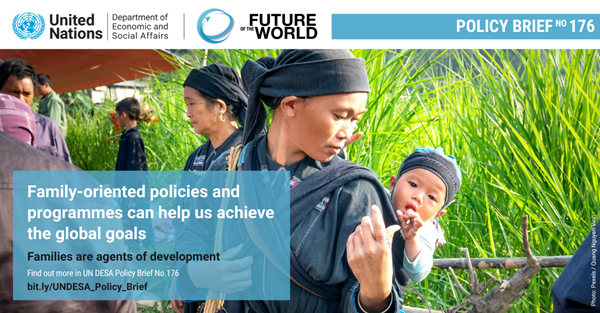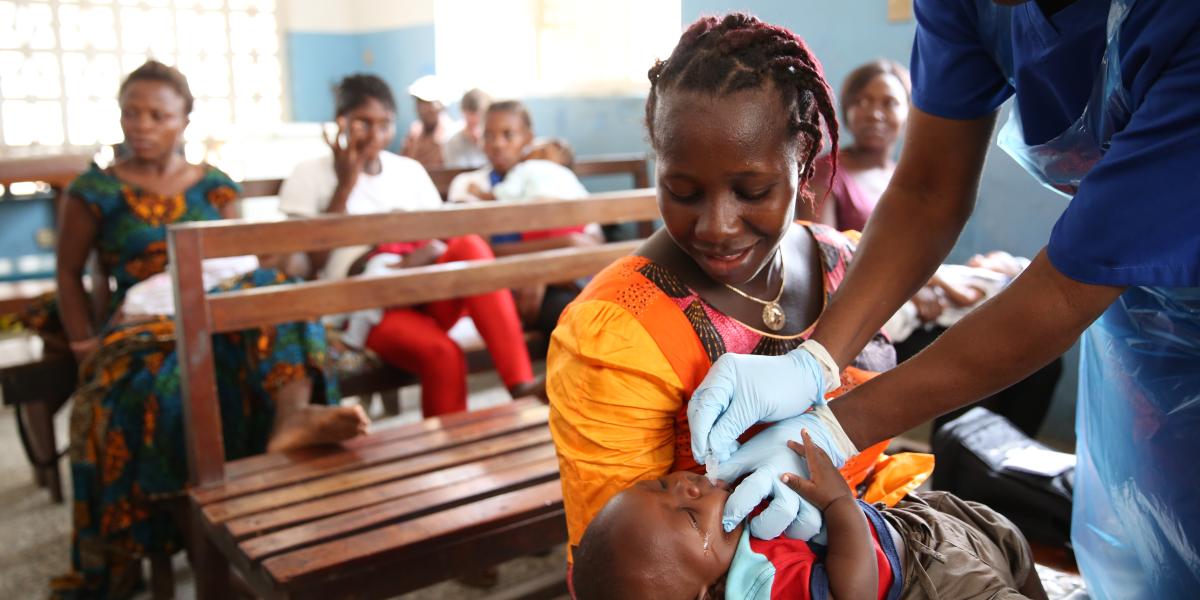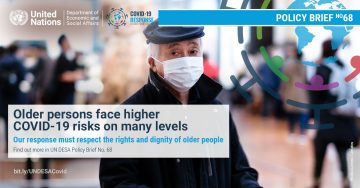Publications
Displaying 1 - 4 of 4
Policy Briefs |
This policy brief presents a global analysis of 171 Voluntary National Reviews (2020–2024) from 141 countries addressing core aspects of family well-being by focusing on policies related to: poverty reduction (SDG1), food security and nutrition (SDG2), health and well-being (SDG3), quality education (SDG4), and gender equality (SDG5). These VNRs demonstrate little and uneven progress in implementing family-oriented policies, compared to the 2016–2019 VNRs. There is modest positive progress in reducing poverty, improving maternal and child mortality, and increasing access to water and sanitation services. However, family-oriented policies addressing extreme poverty and food insecurity have…
Policy Briefs |
Understanding how population trends are likely to unfold in the short, medium and long terms is critical for achieving a more inclusive, prosperous and sustainable future as recognized in the Declaration on Future Generations. This policy brief provides an overview of some of the main findings of the recently released report, World Population Prospects 2024: Summary of Results (United Nations, 2024a) with the aim of helping countries prepare for population sizes, age structures and spatial distributions that may differ appreciably from those of their recent past.
ALL POPULATIONS ARE MOVING TOWARDS LONGER LIVES AND SMALLER FAMILIES
At first glance, the demographic outlook of countries…
Policy Briefs |
INTRODUCTION
Population ageing is a global phenomenon, a shift towards an increasing share of older persons in the population. Even the least developed countries (LDCs) are beginning to experience the progressive ageing of their populations, and this process is expected to accelerate during the second half of the current century (United Nations, 2023a). Despite its far-reaching consequences, the emergence of this trend in LDCs has attracted only limited attention from both national policymakers and the international community. Most LDCs are still early in the decades-long process of population ageing, which is a direct consequence of the demographic transition towards longer lives and…
Policy Briefs |
As the world grapples with an unparalleled health crisis, older persons have become one of its more visible victims. The pandemic spreads among persons of all ages and conditions, yet available evidence indicates that older persons and those with underlying medical conditions are at a higher risk of serious illness and death from the COVID-19 disease.
Often, chronic health conditions are more prevalent in old age; increasing risks for older adults. The World Health Organization has reported that over 95 per cent of fatalities due to COVID-19 in Europe have been persons aged 60 years or older. Several sources suggest that as data from fatalities in nursing homes become available, the death…
 Welcome to the United Nations
Welcome to the United Nations



